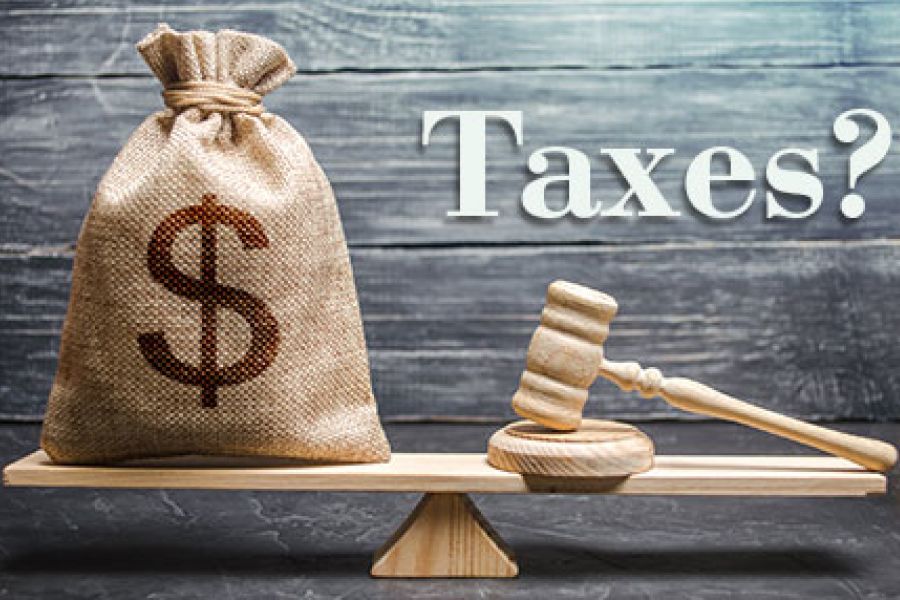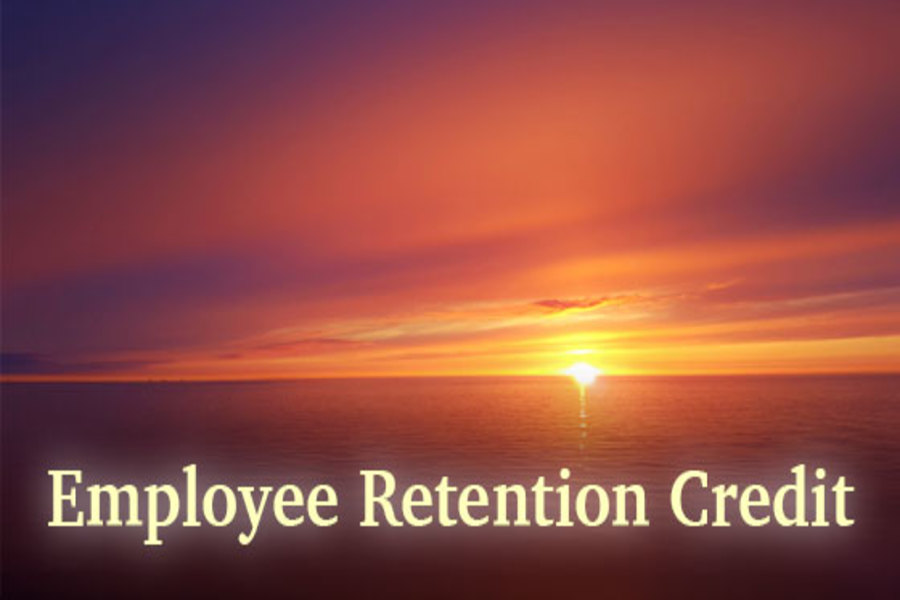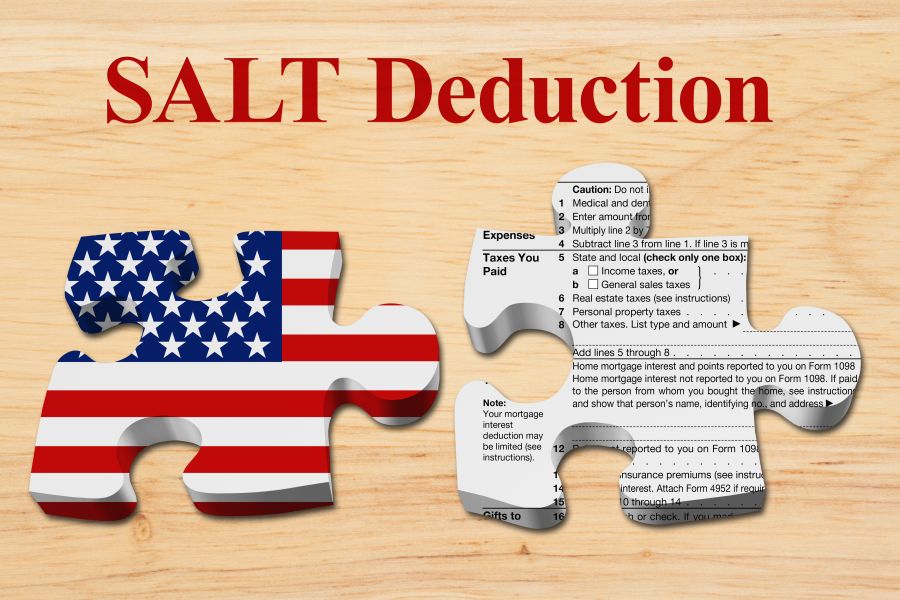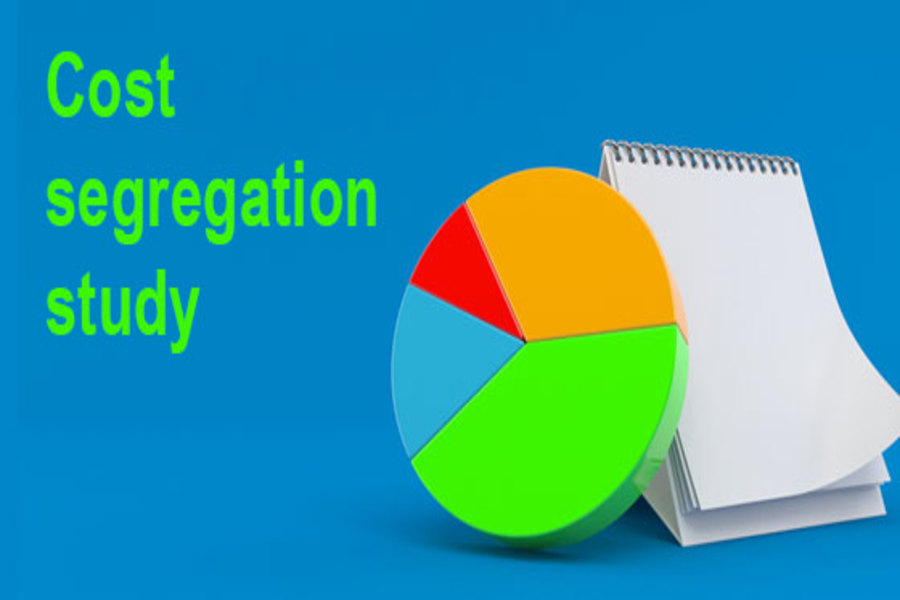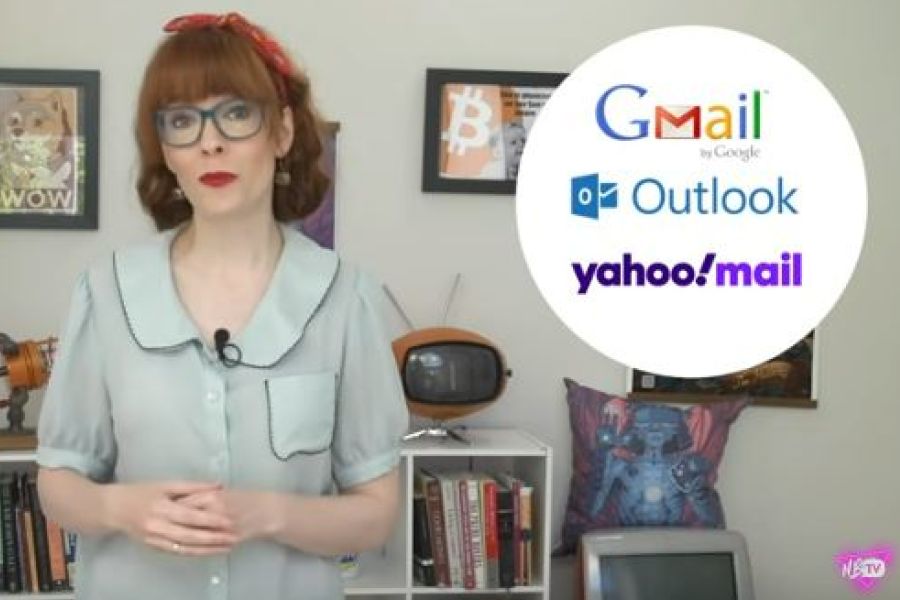Awards and settlements are routinely provided for a variety of reasons. For example, a person could receive compensatory and punitive damage payments for personal injury, discrimination or harassment. Some of this money is taxed by the federal government, and perhaps state governments. Hopefully, you’ll never need to know how payments for personal injuries are taxed. But here are the basic rules — just in case you or a loved one does need to understand them. Under tax law, individuals are permitted to exclude from gross income damages that are received on account of a personal physical injury or a physical sickness. It doesn’t matter if the compensation is from a court-ordered award or an out-of-court settlement, and it makes no difference if it’s paid in a...

The Employee Retention Tax Credit (ERTC) was a valuable tax credit that helped employers survive the COVID-19 pandemic. A new law has retroactively terminated it before it was scheduled to end. It now only applies through September 30, 2021 (rather than through December 31, 2021) — unless the employer is a “recovery startup business.” The Infrastructure Investment and Jobs Act of 2021 (IIJA 2021), which was signed by President Biden on November 15, 2021, doesn’t have many tax provisions but this one is important for some businesses. If you anticipated receiving the ERTC based on payroll taxes after September 30 and retained payroll taxes, you must determine how and when to repay those taxes and address any other compliance issues. The American Institute of Certified Public Accountants (AICPA)...
As posted to the Now You Know YouTube Channel on 11/5/2021 (Run Time 29 min, 54 sec, when starting at time code 3:22) Now You Know sits down with legendary automotive engineer Sandy Munro in November 2021 to compare and contrast today's unfolding Chinese EV rollout with the Japanese vehicle invasion of the 1970s and 1980s. On the Chinese EV business model, Sandy comments, "We're playing checkers . . . one move at a time. They're playing chess. If you're business plan is geared toward the book 'The Art of War', you'll win." (This is Blog Post #1130) Sandy Munro is an automotive engineer who specializes in machine tools and manufacturing. He joined the Ford Motor Company in 1978 and then started his own consulting company, Munro & Associates,...
Recent pass-through entity (PTE) tax (AB-150) clarifications from the Franchise Tax Board (FTB) underscore that detailed planning is critical when considering this credit. For an overview of AB-150, also see our initial 8/15/21 post on this subject: "California AB-150 Provides SALT Cap Workaround". PTE Election The election to pay the tax is: made annually, is irrevocable, and can only be made on an original, timely filed return, including extensions PTE Tax Due Date (2021 Tax Year) For the initial year the PTE tax credit concepts exists (2021) the tax is due by original due date of the 2021 tax year return, without regard to extensions. For calendar-year taxpayers, that is March 15, 2022. Logistics of PTE Tax Payments / K-1 Recipient Credits Prior to the original due date of the tax...
The COVID-19 pandemic has put unprecedented stress on private business owners. Some are now considering selling their businesses. Before putting your business on the market, it’s important to prepare it for sale. Here are six steps to consider. Clean up the financials Buyers are most interested in an acquisition target’s core competencies, and they usually prefer a clean, simple transaction. Consider buying out minority investors who could object to a deal and removing nonessential items from your balance sheet. Examples of items that could complicate a sale include underperforming segments, non-operating assets and shareholder loans. Sales are often based on multiples of earnings or earnings before interest, taxes, depreciation and amortization (EBITDA). Do what you can to maximize your bottom line. That includes cutting extraneous expenses...
Are you planning to launch a business or thinking about changing your business entity? If so, you need to determine which entity will work best for you — a C corporation or a pass-through entity such as a sole-proprietorship, partnership, limited liability company (LLC) or S corporation. There are many factors to consider and proposed federal tax law changes being considered by Congress may affect your decision. The corporate federal income tax is currently imposed at a flat 21% rate, while the current individual federal income tax rates begin at 10% and go up to 37%. The difference in rates can be mitigated by the qualified business income (QBI) deduction that’s available to eligible pass-through entity owners that are individuals, estates and trusts. Note that non-corporate taxpayers...
If your business is depreciating over a 30-year period the entire cost of constructing the building that houses your operation, you should consider a cost segregation study. It might allow you to accelerate depreciation deductions on certain items, thereby reducing taxes and boosting cash flow. And under current law, the potential benefits of a cost segregation study are now even greater than they were a few years ago due to enhancements to certain depreciation-related tax breaks. Fundamentals of depreciation Generally, business buildings have a 39-year depreciation period (27.5 years for residential rental properties). Usually, you depreciate a building’s structural components, including walls, windows, HVAC systems, elevators, plumbing and wiring, along with the building. Personal property — such as equipment, machinery, furniture and fixtures — is eligible for...
As posted to the Naomi Brockwell YouTube Channel on 6/21/21 (Run Time: 12 min, 48 sec) In this informative video from her Privacy Series, Naomi Brockwell compares the most popular e-mail options available to help you make an informed decision as to which will work best for your personal situation. The author's outline of the clip on YouTube is as follows: E-mail remains an essential backbone of internet communication, with over 4 billion users worldwide. But is it private? Actually it's inherently insecure. Furthermore, the vast majority of users rely on free online email services. Did you know that they use AI algorithms to scan your emails in order to learn more about you? Or that emails are stored in the clear, meaning in the event of a hack,...
Background Businesses are having difficulties hiring an adequate number of employees as the economy resets after the COVID-19 lockdowns and their aftermath. As such, small businesses are having to think outside the box as they work toward locating amenable workers. If your small business hires a "targeted group" member, you are afforded the ability to claim the lucrative federal Work Opportunity Tax Credit (WOTC) for a portion of wages paid to such an individual. CAA 2021 Changes Within the Consolidated Appropriations Act of 2021 (signed into law on 12/27/20) was the Taxpayer Certainty and Disaster Tax Relief Act of 2020 (TCDTRA 2020). TCDTRA 2020 extended the WOTC to cover qualified first-year wages paid to eligible new hires who begin work by 12/31/25. This means that the hiring and paying...
Low interest rates and other factors have caused global merger and acquisition (M&A) activity to reach new highs in 2021, according to Refinitiv, a provider of financial data. It reports that 2021 is set to be the biggest in M&A history, with the United States accounting for $2.14 trillion worth of transactions already this year. If you’re considering buying or selling a business — or you’re in the process of an M&A transaction — it’s important that both parties report it to the IRS and state agencies in the same way. Otherwise, you may increase your chances of being audited. If a sale involves business assets (as opposed to stock or ownership interests), the buyer and the seller must generally report to the IRS the purchase...


